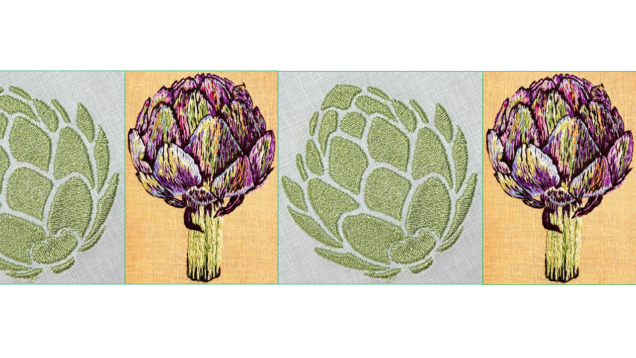About the Translators

Translators who have contributed original translations to Artichoke
Helga Anetshofer
Helga Anetshofer teaches Ottoman and modern Turkish at the University of Chicago. She obtained her doctorate degree in Ottoman and Turkish Studies from the University of Vienna in 2001. Her expertise is in Old Anatolian Turkish and early Ottoman language and literature. She has published on Old Anatolian Turkish morphosyntax, lexicology, and etymology, and topics in Women’s and Gender Studies. She contributed various entries on Turkish word formation to vols. 1–2 of Andreas Tietze’s Historical and Etymological Dictionary of Turkish (Tarihi ve Etimolojik Türkiye Türkçesi Lugatı, 2002, 2009); and has been working as a consultant for Turkic Languages for the Oxford English Dictionary since 2014. Recently, she has published selected translation examples from Ottoman literature in The Ottoman World: A Cultural History Reader, 1450–1700 (co-edited with Hakan T. Karateke, 2021).
Ceyhun Arslan
C. Ceyhun Arslan is Assistant Professor of Comparative Literature at Koç University, Turkey. He received his PhD in Near Eastern Languages and Civilizations (with secondary fields in Comparative Literature and Studies of Women, Gender, and Sexuality). His main research interests are Arabic and Turkish literatures, Mediterranean studies, and literary theory. His peer-reviewed articles have appeared in various journals, such as Journal of Arabic Literature, Comparative Literature Studies, and Middle Eastern Literatures. He also has forthcoming book chapters in Sea of Literatures: Towards a Theory of Mediterranean Literature and The Routledge Companion to Arabic Poetry. His monograph, The Ottoman Canon and the Construction of Arabic and Turkish Literatures, is forthcoming from Edinburgh University Press. Mr. Arslan has recently been awarded the Georg Forster Fellowship for Experienced Researchers from the Alexander von Humboldt Foundation of Germany.
William Blair
William M. Blair has an M.A. in Near Eastern Studies from Princeton University, where he has worked the last thirty-five years in various capacities, including as lecturer in NES, Turkish bibliographer, Turkish and Ottoman print and manuscript cataloger, editor, and member of the NES administrative staff. His research interests include nineteenth-century Ottoman naval history, technology transfer, Ottoman bibliography, and German World War I propaganda in the Muslim world.
Evrim Emir-Sayers
Evrim Emir-Sayers is a philosophy scholar who researches, teaches, writes, edits, and translates out of Paris, France. She is a co-founder and core faculty member of the Paris Institute for Critical Thinking (PICT).
Selen Erdoğan
Selen Erdogan is a visiting scholar at Harvard University, The Center for Middle Eastern Studies. She received her Ph.D. in Turkish Language and Literature from Bogazici University in 2021 with a dissertation titled Writing from the Closet: Bilge Karasu’s Queer Modernism. Her work examines how Bilge Karasu’s fiction contributes to queer theory by transgressing the heterosexual matrix and Karasu’s dialogue with significant works of modernism. She spent the 2018-19 academic year in the United States as a Fulbright Researcher at the University of Pennsylvania’s Comparative Literature Department. Since 2015 she has taught Turkish modernism and queer literature courses at Bogazici, Sabanci, and Kadir Has Universities. She published articles, book chapters, essays, and reviews in journals, including New Perspectives on Turkey, Journal of Ottoman and Turkish Studies Association, Bir+Bir, and Notos. Her research interests include modern Middle Eastern literatures, women’s writing and life narratives, comparative modernisms, gender and sexuality, queer theory.
Nilüfer Hatemi – See about us page
Burcu Karahan
See Burcu Karahan’s Faculty Page
Roberta Micallef – See about us page
Murat Nemet-Nejat
A talented writer and translator, was born in Istanbul. He studied literature at Amherst College and Columbia University in the United States after graduating from Robert College in Istanbul, Turkey. Since 1959, he has made the United States his home. Nemet-Nejat is known for editing “Eda: An Anthology of Contemporary Turkish Poetry” and translating works by renowned Turkish poets like Ece Ayhan and Orhan Veli for English-speaking audiences. His essays explore topics ranging from Istanbul’s possibilities to reflections on photography. In addition to his literary contributions, Nemet-Nejat writes evocative poetry, including pieces like “Rooster Street” and “A 13th Century Dream.” Currently, he is immersed in translating Seyhan Erozçelik’s “Rose Strikes and Coffee Grinds” while also working on his own long poem, “Structure of Escape.”
David Selim Sayers
David Selim Sayers is a scholar of Ottoman and Turkish Studies with a focus on history and literature. He is a co-founder and core faculty member of the Paris Institute for Critical Thinking (PICT).
Alp Eren Topal
Ahmet Yusuf Yüksek is a PhD candidate in the joint PhD program in History and Middle Eastern and Islamic Studies at New York University. His research interests include the religio-political and social history of the Ottoman Empire. He is a recipient of the Ottoman and Turkish Studies Association’s 2019 Sidney N. Fisher Graduate Paper Prize for his article titled “Sufis and Sufi Lodges in Istanbul in the Late Nineteenth Century: A Spatial Inquiry,” which was later published in the Journal of Urban History in 2021.
Yusuf is also deeply engaged in digital humanities scholarship. Before joining NYU in 2019, he worked as a research assistant on two digital humanities projects for three years in Istanbul, Turkey, and St. Andrews, Scotland. He participated in the Polonsky Foundation-NYU Digital Humanities Internship Program during the summer of 2020 and has served as a contributor for Ottoman Studies at The Digital Orientalist and as an editor Digital Ottoman Studies.